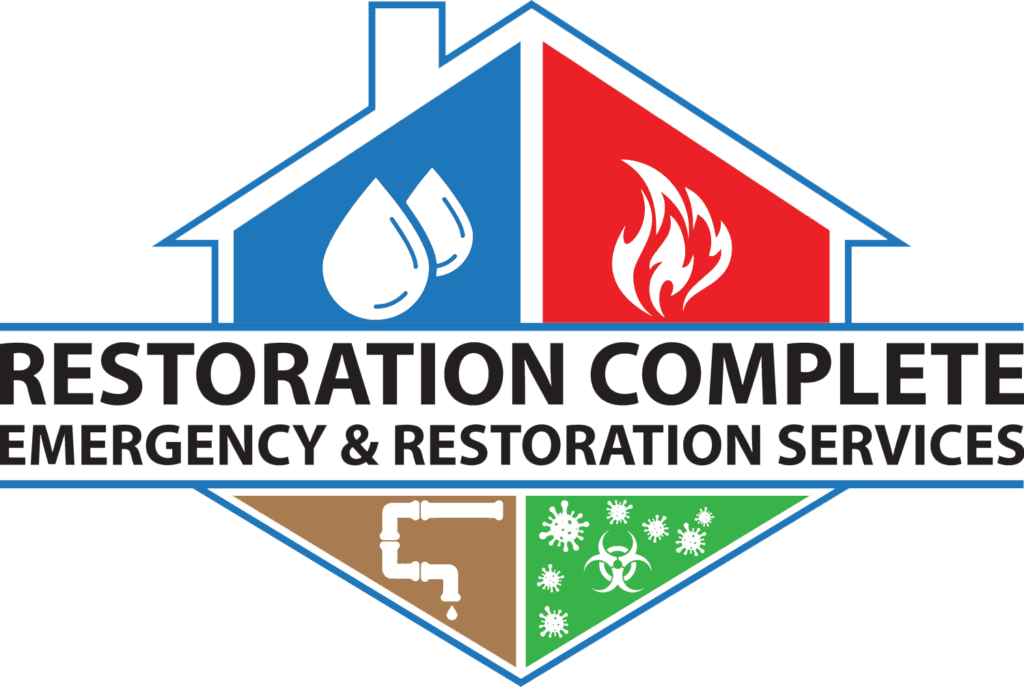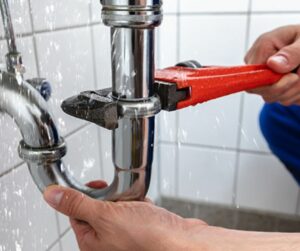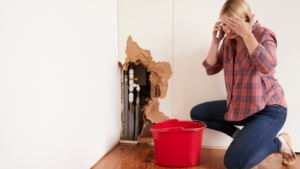Facing persistent mold issues in Atlanta due to weather? In Atlanta, humidity, warmth, and rain collude to make homes a haven for mold. This article provides a clear look at how specific local weather conditions encourage mold growth and lays out strategies to safeguard your home against it.
Key Takeaways: Mold Issues in Atlanta
- Atlanta’s humid climate, rainfall, and temperature fluctuations contribute significantly to mold growth, necessitating regular moisture control and indoor air quality checks to prevent and address mold issues effectively.
- Signs of a mold problem in Atlanta homes include visible discoloration, musty odors, and health symptoms like sneezing, coughing, or skin irritations, which call for immediate investigation and remediation to prevent further health risks and property damage.
- Professional mold remediation services in Atlanta are essential for handling severe mold issues, providing expert assessments, thorough cleanups, and tailored preventative measures to ensure homes and buildings are safeguarded against future mold problems.
Weather Factors Contributing to Mold Growth in Atlanta
The undulating Atlanta climate serves as a perfect petri dish for mold spores to flourish. The city’s signature humidity, coupled with a tendency for high average rainfall and temperatures that often soar above the 70ºF mark, creates a lush environment for these microscopic fungi to thrive.
As seasons change, the mild winters make way for an even warmer spring, summer, and fall, further nurturing the mold colonies that could be lurking within our homes. The heat alone is enough to set the stage, but when this warmth is soaked with moisture, it becomes a grand theatre for mold growth, especially in buildings that bear the marks of time or the scars of subpar construction.
Humidity and Mold Growth
The fight against mold in Atlanta feels like a never-ending struggle with moisture. The city’s air, often thick with humidity, provides a constant source of nourishment for mold spores. When the humidity level tips over the 60% mark, it signals a red alert for homeowners, as these conditions are ripe for mold to take root and spread.
Heat, acting as a catalyst, speeds up this process, providing a conducive environment for mold propagation. It’s not only the outdoor air that’s concerning; interior moisture can escalate to worrying levels, particularly in areas such as basements and bathrooms where ventilation might be lacking.
Temperature Fluctuations
Our homes are our fortresses against the whims of weather. Ideally, robust insulation should shield us from Atlanta’s eclectic temperature swings, maintaining a stable indoor climate that deters mold growth. However, when insulation fails, whether due to age or damage, our defenses are weakened. The outdoor temperatures begin to dictate our indoor conditions, leading to condensation—a mold’s best friend—as warm air collides with cool surfaces.
Excess heat, leaking through the weak insulation, silently invites mold to inhabit our homes, thriving in the damp consequences of these temperature-driven condensation.
Rainfall and Mold Issues
Atlanta’s rainfall patterns, much like an impromptu thunderstorm, can burst onto the scene and exacerbate mold issues with little warning. Torrential downpours can overwhelm even the most robust drainage systems, leaving in their wake the perfect conditions for mold to spread. The consequences of such events may not be immediately visible, but over time, the lingering dampness becomes a breeding ground for mold, posing a silent threat to health and home.
The stealthy nature of mold implies that it may not expose itself until days, or even months, after a heavy rain, requiring alertness and preemptive actions to stay ahead. It’s not just about fixing what’s broken; it’s about understanding that mold is a symptom of deeper moisture issues that must be addressed from the source. Regular indoor air quality inspections can be our eyes where ours cannot see, uncovering hidden mold issues and allowing for early intervention.
A stitch in time, they say, saves nine, and maintaining indoor humidity levels below 50% while ensuring our HVAC systems are in top form is a tapestry of prevention worth weaving.
Identifying Mold Problems in Your Atlanta Home
As homeowners in Atlanta, we must always be on guard for signs of mold intrusion. The clues are there for those who know where to look: in the moisture-rich environments of our basements, bathrooms, and laundry rooms, or in any room that lacks the breath of fresh air. Water staining, material warping, and those all-too-familiar musty odors are not just unsightly or unpleasant—they’re harbingers of a deeper mold issue taking root within our homes.
Visual Signs of Mold
Mold can be quite the chameleon, appearing in hues of grey, black, or green, with textures ranging from fuzzy to slimy. It’s a master of disguise, hiding behind wallpaper or within walls, betraying its presence with persistent discoloration that refuses to be painted over. This is a clear indication of a mold problem.
These visual cues, along with other factors, should prompt you to investigate further and eliminate the issue before it intensifies.
Mold Odors
Sometimes, mold announces its presence not through sight, but through scent. A musty scent, similar to an antique book or the ground after a rain, can indicate a concealed mold colony even before it’s visible. This smell, varying from tangy to sweet, is the aroma of mold releasing microbial volatile organic compounds into your home.
It’s important to remember that not everyone may notice these odors, as their perception can be as varied as the scents themselves.
Health Symptoms
The presence of mold and pollen often manifests as more than just an unpleasant smell or sight—it can leave its mark on our health. Mold exposure can trigger a spectrum of symptoms from sneezing to skin irritations, and for those allergic to mold or mold allergies, these reactions can be severe. Respiratory issues such as coughing, wheezing, and difficulty breathing are common signs that mold spores are at play.
For those with weakened immune systems or chronic lung conditions, the risks heighten, potentially resulting in severe infections. Recognizing these health signs is not just about addressing discomfort—it’s about acknowledging and tackling the mold issue at its source.
Effective Moisture Control Strategies for Atlanta Homes
Tackling mold in our Atlanta homes is a complex task, with moisture control forming the crux of the challenge. Keeping our homes dry is not just a matter of comfort, but of health and safety. It’s about finding the balance, managing both the overt and covert sources of humidity that infiltrate our living spaces.
Atlanta’s mold experts are unequivocal in their advice: keeping indoor humidity levels under the 60% threshold is a non-negotiable in the war against mold growth. Here are some strategies to help you achieve this:
- Fix any leaks or sources of moisture in your home.
- Increase air circulation by using fans or opening windows.
- Use dehumidifiers in areas with high humidity. By implementing these strategies, you can fortify your home against mold growth.
Ventilation and Air Circulation
Ventilation serves as our unobtrusive protector, diligently working to reduce mold risk by maintaining indoor heat and humidity levels. In high-moisture areas like the kitchen and bathroom, exhaust fans act as the first line of defense, preventing moisture from claiming more territory. A whole-building ventilation system goes even further, ensuring that fresh air circulates throughout, replacing the stale, moisture-laden atmosphere that mold loves. These systems require our attention too; without regular inspection and maintenance, they cannot protect our homes effectively.
Ductwork, the veins through which our homes breathe, must be sealed and cleaned to prevent mold from settling in. Simple habits, such as using exhaust fans when cooking or bathing, coupled with ensuring proper drainage around the exterior of our homes, can make all the difference in preventing mold. In crawl spaces, where air often stagnates, the introduction of vents, fans, and vapor barriers can be transformative, managing moisture and fending off mold.
Leak Detection and Repair
Water intrusion is an ally to mold, and conducting regular checks on our plumbing, roofing, and structural integrity forms our strongest defense against it. Proactive homeowners can play detective, turning off all water appliances to observe the water meter for any movement, or conducting simple tests like dye testing in toilets to uncover hidden leaks.
For leaks that evade the naked eye, infrared cameras are the superheroes, revealing temperature discrepancies that hint at moisture lurking behind walls or under floors. When a leak is discovered, prompt action is crucial: shut off the water, remove wet materials, and repair the leak to prevent further damage and mold formation.
The diligence in checking and repairing leaks in pipes, roofs, and foundations not only prevents mold growth but also preserves the very structure of our homes.
Dehumidifiers and Moisture Absorbers
Dehumidifiers act as attentive guards, tirelessly working to rid the air of surplus moisture, thereby depriving mold of one of its vital components. In spaces where ventilation falls short, moisture absorbers step in, drawing in the humidity that would otherwise fuel mold colonies. However, these tools alone are not a panacea; they must be complemented with efforts to seal and insulate our homes, preventing new moisture from sneaking in.
By creating a harmonious alliance between these devices and measures like air sealing, we can control moisture and keep our indoor humidity at levels that leave mold spores high and dry.
Professional Mold Remediation Services in Atlanta
When mold problems go beyond the realm of prevention and necessitate professional assistance, Atlanta’s mold remediation services are at the ready. Offering a spectrum of services from inspections to cleanups, these professionals are equipped with the tools and expertise to confront mold head-on. Some companies even boast a 100% clean rate, offering specialized services such as indoor air quality testing and crawlspace encapsulation, ensuring that mold is not just removed, but its return is thoroughly deterred.
Commercial buildings can also find comfort in eco-friendly services that address both inspection and removal considerations, keeping environmental impact in mind. And in the event of mold’s unwelcome presence, Atlanta homeowners can call upon professional sanitizing services to reduce bacteria and pathogens, not just in localized areas, but throughout their entire homes.
Mold Inspection and Testing
Mold inspection and testing form the initial surveillance phase in our mold remediation strategy. In Atlanta, certified mold inspectors bring their expert eye and technology to the task, identifying which mold species have infiltrated our homes and assessing the potential impact on our health and structures. Utilizing thermal imaging and air quality testing, they can pinpoint areas prone to mold and collect samples to determine the full extent of the infestation.
These detailed inspections not only reveal the type of mold but also guide the remediation strategy, ensuring that the right measures are taken to protect the integrity of our homes and health. For homeowners, this service provides the crucial intelligence needed to understand the specific mold risks within their property.
Mold Removal and Cleanup
The actual process of removal and cleanup is a careful procedure aimed at preventing the spread of spores and cross-contamination. Atlanta’s mold remediation specialists employ comprehensive methods to ensure that once the mold is removed, it doesn’t return.
Their approach includes thorough sanitation of affected areas, leaving homes not just mold-free but also sanitized against future invasions.
Preventative Measures and Recommendations
Prevention forms the cornerstone of any mold management plan. Atlanta’s mold remediation experts are not just skilled in removal, but also in advising homeowners on the best strategies to keep their environments mold-free. Their recommendations are tailored to each home’s unique conditions, ensuring that the preventative measures taken are as effective as possible in deterring mold growth.
Following these expert guidelines can help maintain a home that is not only free of mold but also of allergens and toxins, contributing to a safer and healthier living environment.
Restoration Complete LLC: Mold Issues in Atlanta
In the heart of Atlanta’s battle against mold and other restoration challenges stands a champion: Restoration Complete LLC. This company is at the forefront, offering comprehensive services that cater to the unique needs of both residential and commercial properties. Their expertise spans across the spectrum of restoration, including:
- Water damage
- Mold remediation
- Fire and smoke damage
- Storm and biohazard cleanup
Restoration Complete LLC’s team of experienced professionals specializes in returning properties to their pre-damage state, using the latest techniques and equipment to ensure the highest quality of service.
When emergencies occur, their round-the-clock availability is a testament to their dedication to supporting their clients in their time of need.
Summary: Mold Issues in Atlanta
As our journey through the damp and moldy corridors of Atlanta homes concludes, we are armed with knowledge that is both a shield and a sword. We understand the climatic culprits—humid air, relentless rain, and shifting temperatures—that collude to encourage mold growth. We’ve learned how to detect mold through visual cues, distinct odors, and health symptoms. Our arsenal is stocked with moisture control strategies, from vigilant ventilation to diligent dehumidification. And when mold breaches our defenses, we know that professional remediation services stand ready to restore order. With the expertise of companies like Restoration Complete LLC, we can face mold issues with confidence, ensuring that our homes remain healthy havens for years to come.
Frequently Asked Questions
What are the ideal humidity levels to prevent mold growth in Atlanta homes?
The ideal humidity levels to prevent mold growth in Atlanta homes are below 60%, with an ideal range between 30% and 50%. Keeping indoor humidity within this range can help mitigate the risk of mold growth in your home.
Can mold be completely removed from a home?
Mold can never be completely removed from a home, but professional remediation can effectively eliminate active mold growth and reduce spore levels to a safe point.
What should I do if I find mold in my home?
If you find mold in your home, address any moisture sources, clean small areas with appropriate cleaners, and consider professional mold remediation for larger or hidden infestations. It’s important to take action promptly to prevent health risks and further spread of mold.
How often should I have my home inspected for mold?
You should have your home inspected for mold annually, particularly if you live in a high-humidity area or have had water damage before. Regular inspections can help ensure early detection and prevention of mold growth.
Are there any health symptoms that could indicate mold exposure?
If you experience symptoms like sneezing, coughing, wheezing, or skin irritations, it’s important to consider the possibility of mold exposure in your environment as these could be indicators of mold exposure.


